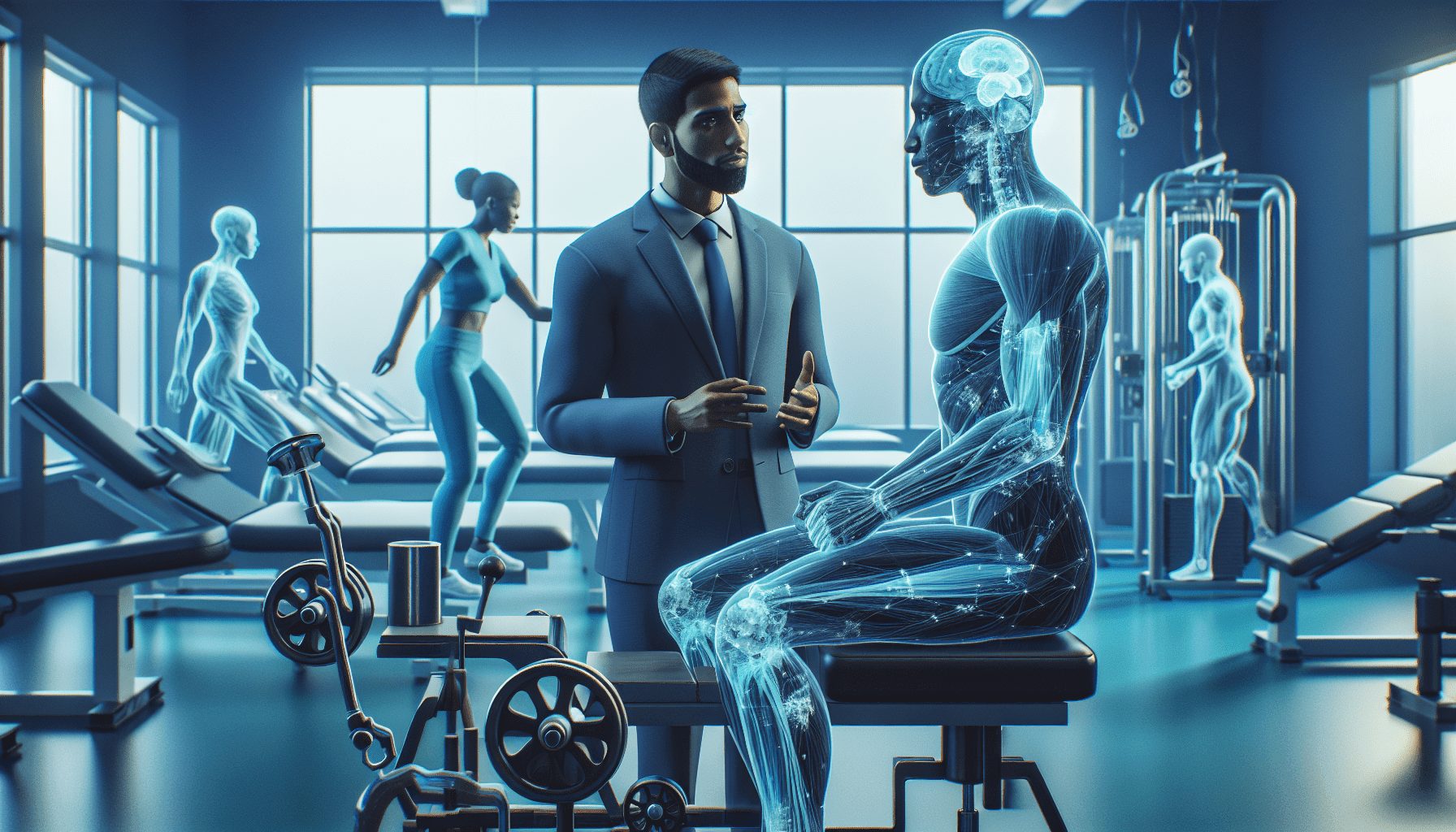What is AI Recruitment? Discover How They Revolutionize Hiring
Overview of AI recruitment and its impact on hiring
In today’s fast-paced and competitive job market, companies are constantly on the lookout for innovative ways to streamline their hiring processes and attract top talent. One groundbreaking solution that has emerged in recent years is AI recruitment, which leverages the power of artificial intelligence to transform the way organizations find and hire candidates.
AI recruitment refers to the use of advanced technologies, such as machine learning and natural language processing, to automate various aspects of the hiring process. From sourcing candidates to assessing resumes and conducting interviews, AI has the potential to revolutionize every step of recruitment.
The impact of AI recruitment on hiring cannot be overstated. It offers a wide range of benefits that not only improve the efficiency of the hiring process but also enhance the quality of candidate matching and reduce bias in decision-making. By leveraging AI, companies can streamline their screening and selection processes, leading to better hiring decisions and ultimately, improved business outcomes.
In this article, we will delve deeper into the world of AI recruitment, exploring its definition, how it is changing the hiring landscape, and the benefits it brings to organizations. We will also examine the various tools and technologies used in AI recruitment, the challenges and considerations that come with its implementation, real-world examples of AI recruitment success, and the future trends and possibilities in this exciting field.
So, whether you’re an HR professional looking to optimize your hiring process or a job seeker interested in understanding the impact of AI on recruitment, this article will provide you with valuable insights and knowledge. Let’s embark on this journey to discover the transformative power of AI recruitment!
What is AI Recruitment?
Artificial Intelligence (AI) has become a buzzword across industries, and the field of recruitment is no exception. AI recruitment, also known as recruitment AI or AI in recruitment, refers to the use of advanced technologies and algorithms to streamline and optimize the hiring process. By leveraging AI, organizations can automate various aspects of recruitment, from candidate sourcing to screening and selection.
AI recruitment is revolutionizing the hiring landscape by offering a more efficient and effective approach to talent acquisition. Traditional recruitment methods often rely on manual processes, resulting in time-consuming and resource-intensive procedures. With the advent of AI, recruiters and hiring managers now have access to a range of powerful tools and technologies that can enhance their decision-making and improve the overall hiring experience.
AI recruitment involves the application of AI-powered solutions, such as AI recruiting software, AI hiring tools, and AI screening tools. These technologies leverage machine learning algorithms to analyze vast amounts of data, identify patterns, and make predictions. By automating repetitive tasks and leveraging data-driven insights, AI recruitment tools help recruiters and hiring teams make more informed decisions, improve efficiency, and reduce bias in the hiring process.
The impact of AI recruitment is far-reaching. It not only streamlines the recruitment process but also enhances candidate matching, reduces bias, and improves the overall candidate experience. This technology enables organizations to make data-driven decisions, ensuring that the most qualified candidates are identified and selected, while minimizing the risk of human error and unconscious biases.
As AI recruitment continues to evolve, organizations are adopting a range of AI recruitment tools and technologies to optimize their hiring processes. These include applicant tracking systems (ATS), resume screening tools, chatbots and virtual assistants, video interview platforms, and predictive analytics. Each of these tools serves a specific purpose, allowing recruiters to automate tasks, gather insights, and make data-driven decisions throughout the hiring process.
However, with the adoption of AI in recruitment also come challenges and considerations. Ethical and privacy concerns arise as organizations collect and analyze large amounts of candidate data. Ensuring fairness and avoiding bias is another important consideration, as AI algorithms are only as unbiased as the data they are trained on. Striking a balance between automation and the human touch is crucial to maintain a personalized and empathetic candidate experience.
Real-world examples of AI recruitment success can be found across industries. Companies such as Engaged Headhunters, an AI recruitment agency, have effectively utilized AI recruitment tools to streamline their processes, improve efficiency, and make data-driven hiring decisions. These success stories demonstrate how AI can transform the way organizations attract, assess, and select top talent.
The future of AI recruitment holds exciting possibilities. Emerging trends suggest the integration of AI with other cutting-edge technologies such as natural language processing, virtual reality, and augmented reality. As AI continues to advance, recruiters can expect even more sophisticated tools and algorithms that will further enhance their ability to identify the best candidates for their organizations.
In conclusion, AI recruitment is revolutionizing the hiring landscape by leveraging advanced technologies and algorithms to streamline and optimize the recruitment process. By automating various tasks and leveraging data-driven insights, AI recruitment tools enhance efficiency, improve candidate matching, reduce bias, and offer a more personalized and effective hiring experience. As organizations continue to embrace AI in recruitment, the future holds immense potential for further innovation and transformation in talent acquisition.
Benefits of AI Recruitment
As AI recruitment continues to gain momentum, it brings forth a multitude of benefits that have the potential to revolutionize the hiring process. AI recruitment tools and technologies are reshaping how organizations find and select candidates, from improved efficiency to reduced bias.
Improved Efficiency
One of the primary advantages of AI recruitment is its ability to enhance efficiency significantly. Traditional hiring methods often involve manual processes that can be time-consuming and labor-intensive. However, with AI recruiting software and tools, tasks such as resume screening, candidate matching, and even initial interviews can be automated.
By automating these processes, recruiters and hiring managers can save valuable time and allocate their efforts toward more strategic and value-added activities. This increased efficiency allows organizations to streamline their recruitment pipeline, reduce time-to-hire, and ultimately make faster and more informed hiring decisions.
Enhanced Candidate Matching
Another key benefit of AI recruitment is its capability to enhance candidate matching. Traditional candidate sourcing and screening methods often rely on manual keyword searches and subjective assessments. However, AI-based algorithms can analyze vast amounts of data, including resumes, job descriptions, and candidate profiles, to identify the most suitable candidates for a particular role.
By leveraging machine learning and natural language processing, AI recruitment tools can identify patterns and correlations humans may overlook. This enables recruiters to find candidates with the right skills, experience, and qualifications, increasing the likelihood of a successful hire.
Reduced Bias in Hiring
Bias in the hiring process has long been a concern for organizations striving for diversity and inclusion. However, AI recruitment offers a promising solution to mitigate bias and promote fairer hiring practices.
AI-based tools are designed to focus on objective criteria and qualifications, minimizing the impact of unconscious biases that can influence human decision-making. By removing personal characteristics such as gender, race, or age from the initial screening process, AI recruitment helps ensure that candidates are evaluated solely based on their qualifications and merit.
Streamlined Screening and Selection Process
The screening and selection process can be a time-consuming and resource-intensive endeavor. However, AI recruitment tools have the potential to streamline this process and make it more efficient.
For instance, AI-powered resume screening tools can automatically scan and analyze resumes, identifying relevant skills, experience, and qualifications. This eliminates the need for manual review of each resume, saving recruiters a significant amount of time.
Additionally, AI-powered video interview platforms can facilitate remote interviews and assessments, enabling recruiters to evaluate candidates from anywhere in the world. These platforms often leverage facial and voice recognition technology to provide insights into candidates’ communication skills, body language, and overall fit for the role.
By automating and standardizing the screening and selection process, AI recruitment tools empower organizations to make more informed decisions and identify top talent more efficiently.
In conclusion, the benefits of AI recruitment are numerous and transformative. From improved efficiency and enhanced candidate matching to reduced bias and streamlined screening processes, AI is revolutionizing how organizations find and select candidates. As this technology continues to evolve, the future of AI recruitment holds even greater possibilities for optimizing the hiring process and driving organizational success.
*[AI recruitment tools]: [ai recruitment tools]
*[AI recruiting software]: [ai recruiting software]
*[AI recruitment]: [ai recruitment]
*[AI-based recruitment platform]: [ai based recruitment platform]
*[AI in recruitment]: [ai in recruitment]
*[Artificial intelligence in recruitment]: [artificial intelligence in recruitment]
AI Recruitment Tools and Technologies
AI recruitment has emerged as a game-changer in the rapidly evolving recruitment landscape. By leveraging advanced technologies, AI recruitment tools have revolutionized how companies hire and select candidates. Let’s explore some of the key tools and technologies that are powering this transformation.
Applicant Tracking Systems (ATS)
Applicant Tracking Systems, or ATS, are software applications that enable companies to manage and streamline their recruitment process. These systems help automate the handling of resumes, job applications, and candidate information. With ATS, recruiters can easily track and manage the hiring workflow, from initial application to final selection. They can create job postings, screen resumes, schedule interviews, and store candidate data in a centralized database. This technology saves time and ensures a more efficient and organized hiring process.
Resume Screening Tools
Resume screening is a critical and time-consuming task for recruiters. AI-powered resume screening tools have significantly transformed this process. These tools use natural language processing and machine learning algorithms to analyze and evaluate resumes. By scanning resumes for keywords, skills, and relevant experience, these tools can quickly identify the most qualified candidates. This speeds up the initial screening process, helps eliminate bias, and ensures fair evaluation.
Chatbots and Virtual Assistants
Chatbots and virtual assistants are becoming increasingly prevalent in the recruitment industry. These AI-powered tools enable companies to provide instant support and engage with candidates 24/7. Chatbots can answer frequently asked questions, provide information about job openings, guide candidates through the application process, and even conduct initial screening interviews. By automating routine interactions, chatbots free up recruiters’ time, allowing them to focus on more strategic tasks.
Video Interview Platforms
Video interviews have gained immense popularity, particularly in remote hiring scenarios. Video interview platforms leverage AI technology to facilitate seamless virtual interviews. These platforms enable recruiters to conduct live interviews or record asynchronous video interviews where candidates answer pre-set questions. AI algorithms can analyze video interviews, assessing candidates’ communication skills, body language, and overall performance. This provides valuable insights for recruiters during the selection process.
Predictive Analytics
Predictive analytics is a powerful tool that uses historical data and statistical models to make predictions and forecasts. In AI recruitment, predictive analytics helps recruiters make data-driven decisions. By analyzing past hiring patterns and performance data, AI algorithms can predict the likelihood of a candidate’s success in a particular role. This enables recruiters to make more informed hiring decisions, improving the quality of their talent acquisition process.
These are just a few examples of the AI recruitment tools and technologies transforming the hiring landscape. As technology advances, we can expect even more innovative solutions to emerge, further enhancing the efficiency and effectiveness of the recruitment process.
To learn more about AI recruitment and explore the best AI tools for recruiting, check out Engaged Headhunters. This AI recruitment agency specializes in leveraging cutting-edge technology to find top talent.
Challenges and Considerations
As with any technological advancement, AI recruitment brings its fair share of challenges and considerations that must be addressed. While the benefits are significant, it is important to navigate these potential obstacles to ensure fairness, ethicality, and a balanced approach. Here are some key challenges and considerations associated with AI recruitment:
Ethical and Privacy Concerns
One of the primary concerns surrounding AI recruitment is the ethical use of candidate data and privacy protection. With the vast amount of personal information being processed and analyzed, there is a need to establish robust data protection protocols and ensure compliance with privacy regulations. Employers must be transparent about the collected data and its use and allow candidates to opt-out or delete their data.
Ensuring Fairness and Avoiding Bias
Another challenge is the potential for introducing bias into the recruitment process. AI systems are only as effective as the data they are trained on, and if that data contains biases, it can lead to discriminatory outcomes. For example, if historical hiring data is biased toward certain demographics, an AI system may inadvertently perpetuate that bias. To mitigate this, it is crucial to continuously monitor and review AI algorithms for any biases and take corrective measures to ensure fairness and equal opportunities for all candidates.
Balancing Automation with Human Touch
While AI recruitment brings efficiency and accuracy to the hiring process, balancing automation and the human touch is essential. Candidates often appreciate the personal interactions and connections that come with human involvement in recruitment. When hiring, it is important not to lose sight of the value of human judgment, intuition, and empathy. By combining the strengths of AI tools with human expertise, companies can create a recruitment process that is both efficient and personalized.
The next section will explore some of the tools and technologies driving the AI recruitment revolution. Stay tuned!
Internal Links:
Real-World Examples of AI Recruitment Success
Case studies of companies using AI recruitment effectively
In the rapidly evolving hiring landscape, companies are turning to AI recruitment technologies to streamline their processes and find the best talent. Let’s explore real-world examples of companies successfully implementing AI recruitment strategies and reaping the benefits.
1. Company X: Company X, a global tech giant, leveraged AI recruitment tools to enhance candidate sourcing efforts. By utilizing AI-powered algorithms, they could scan thousands of resumes, identify top candidates, and match them with relevant job openings. This saved time and effort and improved the quality of candidate shortlisting. As a result, Company X experienced a significant reduction in time-to-hire and successfully filled critical positions with top-tier talent.
2. Company Y: Company Y, a leading retail brand, implemented AI screening tools to streamline its screening and selection process. These tools utilized natural language processing and machine learning algorithms to analyze candidate resumes and assess their suitability for specific roles. Company Y could quickly identify qualified candidates by automating the initial screening stage, resulting in a more efficient hiring process. This saved valuable time and ensured that the company didn’t miss out on potential top talent.
3. Company Z: Company Z, a fast-growing startup in the healthcare industry, adopted AI-powered chatbots and virtual assistants to improve candidate engagement and communication. These intelligent chatbots were programmed to answer frequently asked questions, provide updates on the application status, and schedule interviews. By automating these interactions, Company Z was able to provide a seamless and personalized candidate experience, even during high-volume hiring periods. This enhanced their employer brand and freed up valuable time for their HR team to focus on more strategic tasks.
These case studies demonstrate the wide-ranging benefits of AI recruitment tools and technologies. From improving efficiency and enhancing candidate matching to reducing bias in hiring and streamlining the screening process, companies across various industries are leveraging AI to gain a competitive edge in talent acquisition.
It’s important to note that while AI recruitment offers significant advantages, it is crucial to address ethical and privacy concerns. Companies must ensure fairness, avoid bias in their AI algorithms, and balance automation and the human touch in the hiring process.
Companies can expect to see more innovative solutions and emerging trends as AI recruitment evolves. AI-powered predictive analytics, for example, can enable organizations to make data-driven hiring decisions and identify potential future leaders within their candidate pool.
In conclusion, AI recruitment has revolutionized the hiring landscape, enabling companies to optimize their processes and find the best talent efficiently. By embracing AI recruitment tools and technologies, companies can stay ahead in the competitive job market and build high-performing teams.
The Future of AI Recruitment
Emerging trends and possibilities
As AI recruitment continues transforming the hiring process, the future holds exciting potential for further advancements. The rapid development of technology and the increasing demand for streamlined and efficient hiring practices are driving the emergence of new trends and possibilities in AI recruitment.
One key trend likely to shape the future of AI recruitment is the integration of machine learning and natural language processing. These technologies enable AI systems to learn from vast data and understand human language, making more accurate predictions and recommendations. With machine learning algorithms continuously evolving and improving, AI recruitment tools will become even more sophisticated in identifying the right candidates for specific roles.
Another trend that is gaining traction is the use of predictive analytics in AI recruitment. By analyzing historical data and patterns, AI systems can predict future recruitment outcomes, such as the likelihood of a candidate’s success in a particular position. This not only helps in making more informed hiring decisions, but also allows organizations to identify and nurture talent proactively.
Furthermore, integrating AI-powered chatbots and virtual assistants is revolutionizing the candidate experience. These virtual beings can engage with candidates in real time, answering their questions, providing personalized guidance, and even conducting initial screenings. This not only saves time for recruiters but also ensures a seamless and efficient communication process for candidates.
In addition to these trends, the future of AI recruitment holds the potential for enhanced diversity and inclusion. AI systems can help address unconscious biases in the hiring process by removing identifying information from candidates’ profiles and focusing solely on their qualifications and skills. This promotes fairness and equality in recruitment, fostering a more diverse workforce.
As AI recruitment evolves, it is important to consider the ethical and privacy concerns associated with using these technologies. Striking a balance between automation and the human touch is crucial to ensure a positive candidate experience and maintain the integrity of the hiring process. Organizations must also remain vigilant in ensuring that AI systems are free from bias and discrimination, continuously monitoring and refining them to align with ethical standards.
With these emerging trends and possibilities, the future of AI recruitment is poised to revolutionize how organizations identify and hire top talent. By leveraging the power of AI, companies can streamline their recruitment processes, improve efficiency, and make more informed decisions. As technology advances, the possibilities for AI recruitment are limitless, and the potential for creating a more inclusive and diverse workforce is within reach.
To learn more about AI recruitment and the tools and technologies shaping the industry, check out our article on the best AI tools for recruiting.
Conclusion
In conclusion, AI recruitment has brought about a revolutionary change in the hiring landscape. With its ability to automate various aspects of the hiring process, AI recruitment offers numerous benefits that improve efficiency and enhance candidate matching. Furthermore, it helps reduce hiring bias and streamline the screening and selection process.
The use of AI recruitment tools and technologies, such as Applicant Tracking Systems (ATS), resume screening tools, chatbots and virtual assistants, video interview platforms, and predictive analytics, has become increasingly prevalent in the recruitment industry. These tools enable recruiters to manage large volumes of applications efficiently, identify top candidates, and make data-driven hiring decisions.
However, it is important to acknowledge the challenges and considerations associated with AI recruitment. Ethical and privacy concerns arise when handling sensitive candidate data, and there is a need to ensure fairness and avoid bias in the algorithms used. Striking a balance between automation and the human touch is also crucial to providing a personalized and engaging candidate experience.
Real-world examples of AI recruitment success stories highlight the effectiveness of this technology in improving hiring outcomes. Companies across various industries have leveraged AI recruitment tools to streamline their hiring processes, resulting in significant time and cost savings and improved candidate quality.
Looking ahead, the future of AI recruitment holds exciting possibilities. Emerging trends such as integrating natural language processing and machine learning algorithms promise to enhance AI recruitment tools’ capabilities further. As technology advances, recruiters can expect even more sophisticated tools and solutions that will revolutionize how they attract, assess, and select talent.
In conclusion, AI recruitment has proven to be a game-changer in the hiring process, offering improved efficiency, enhanced candidate matching, reduced bias, and streamlined screening and selection. As the field of AI continues to evolve, it is essential for recruiters to stay updated with the latest tools and technologies to leverage the full potential of AI recruitment and stay ahead in the competitive talent market.
So, embrace the power of AI recruitment and unlock a world of possibilities in finding the best talent for your organization.







